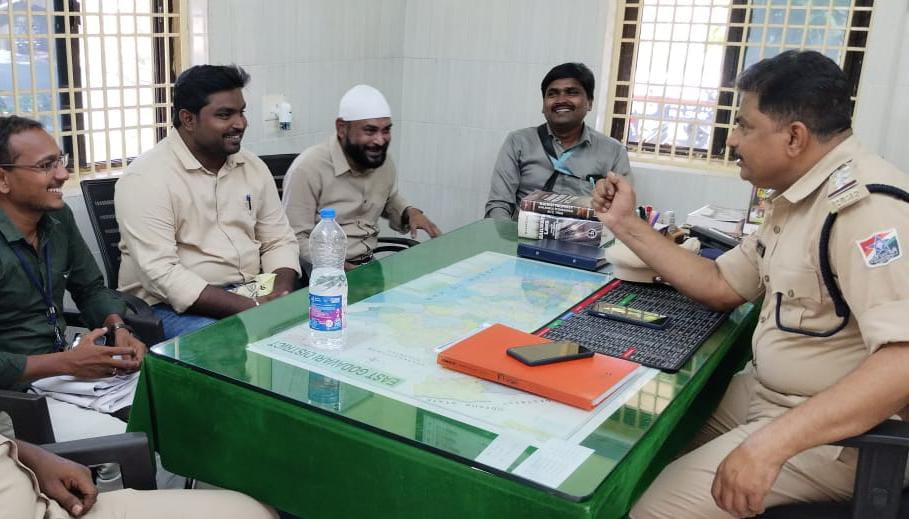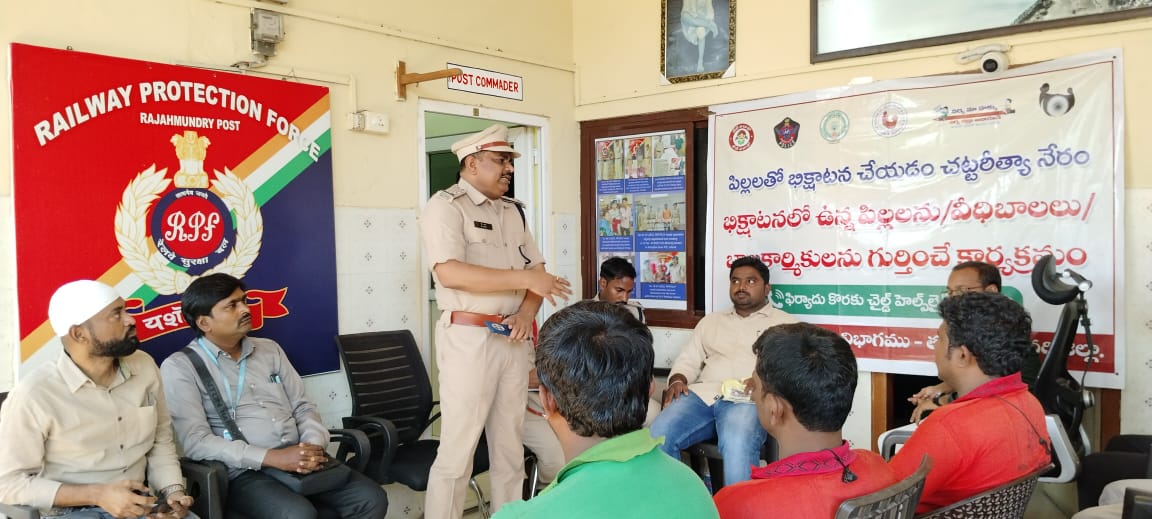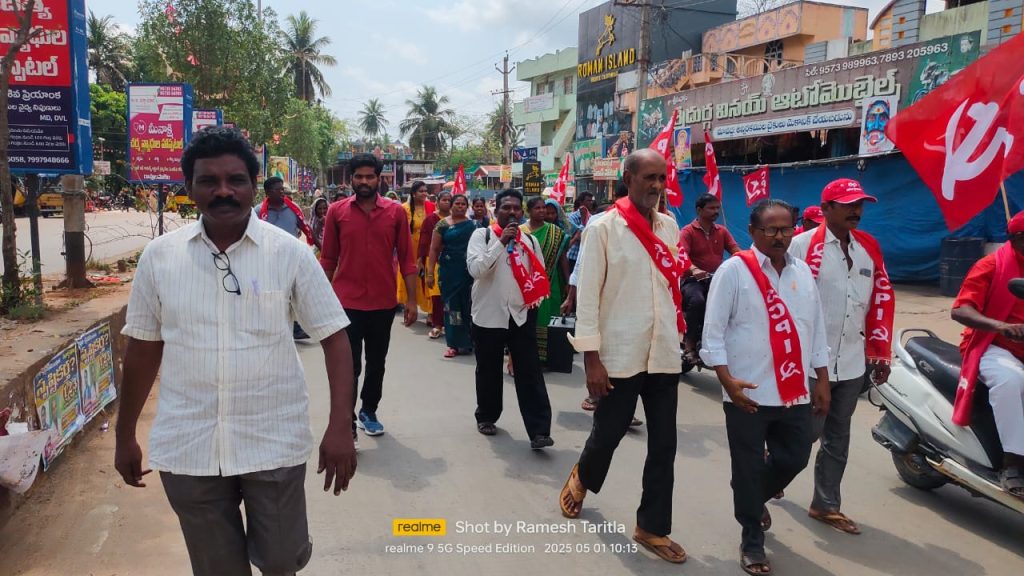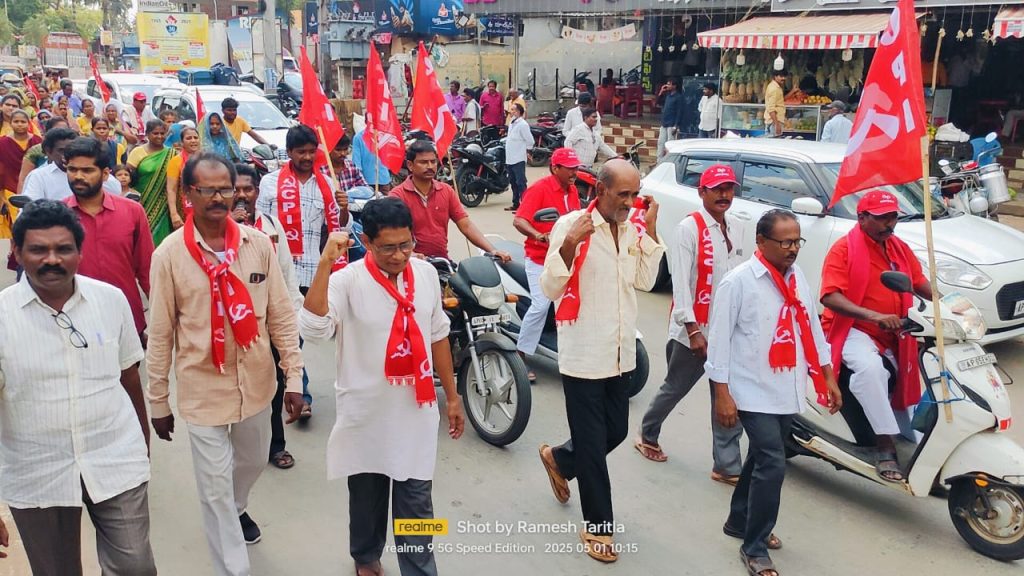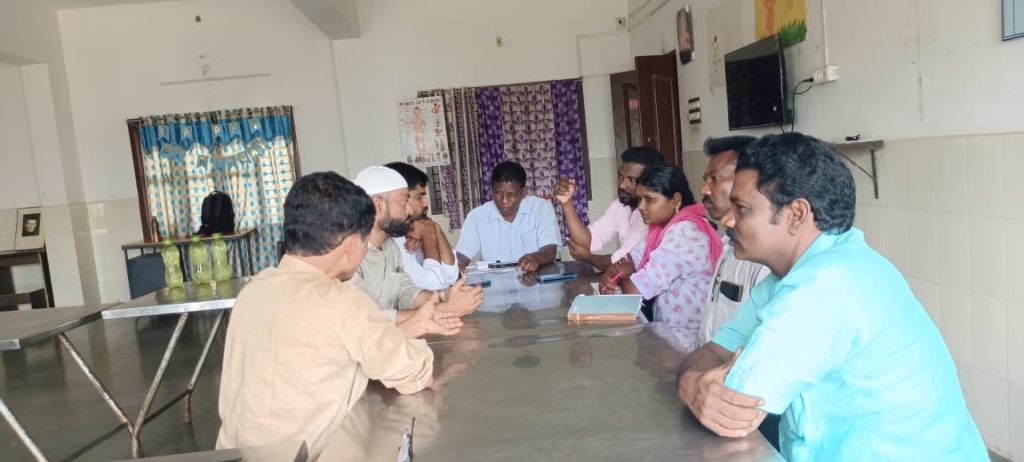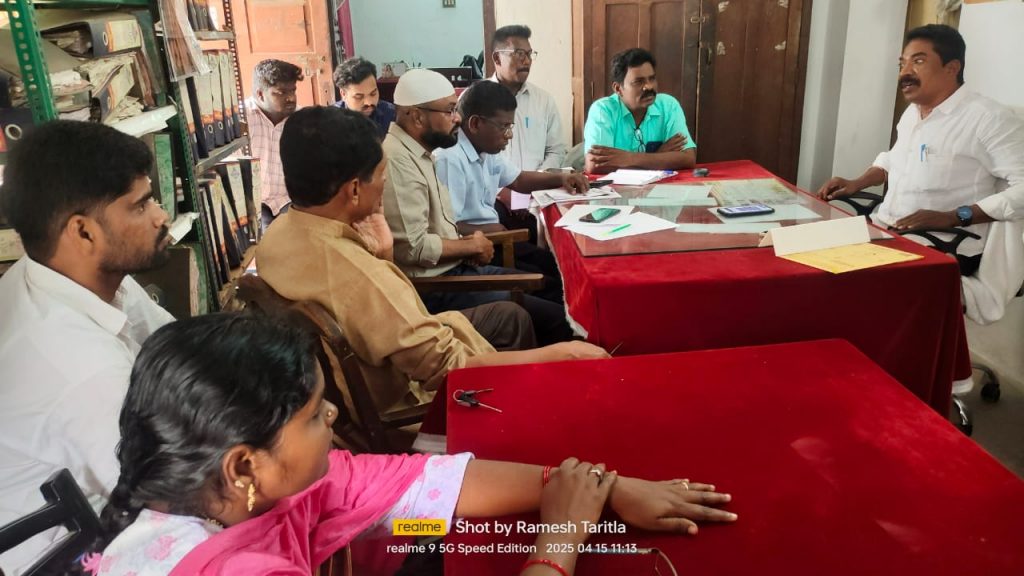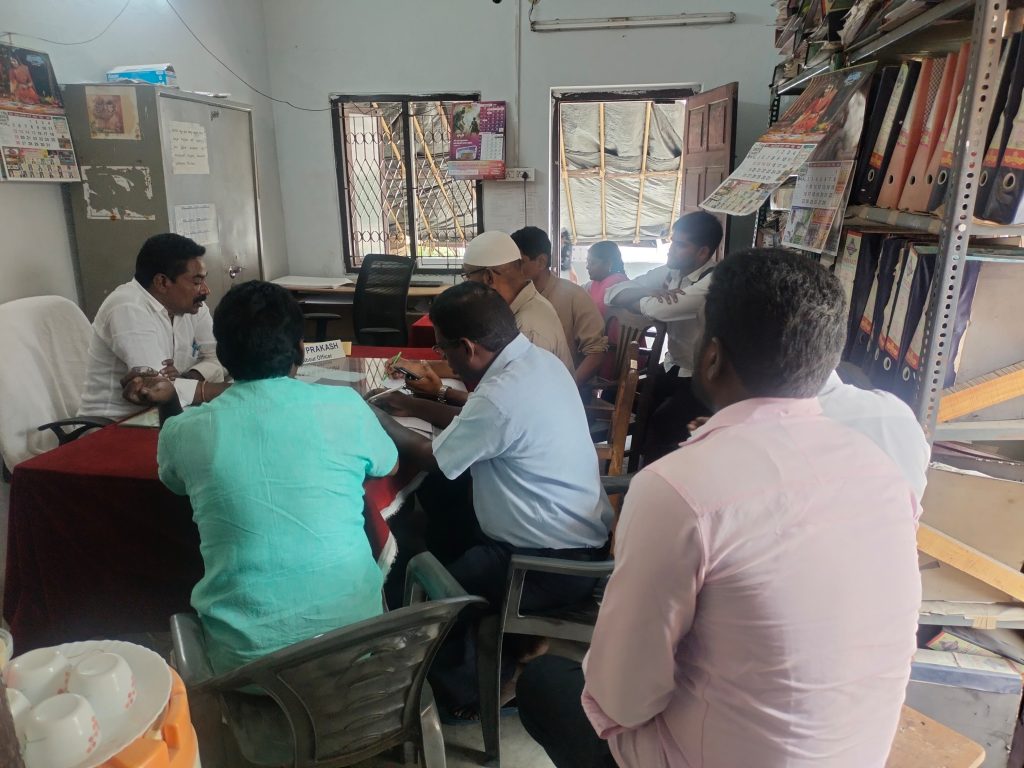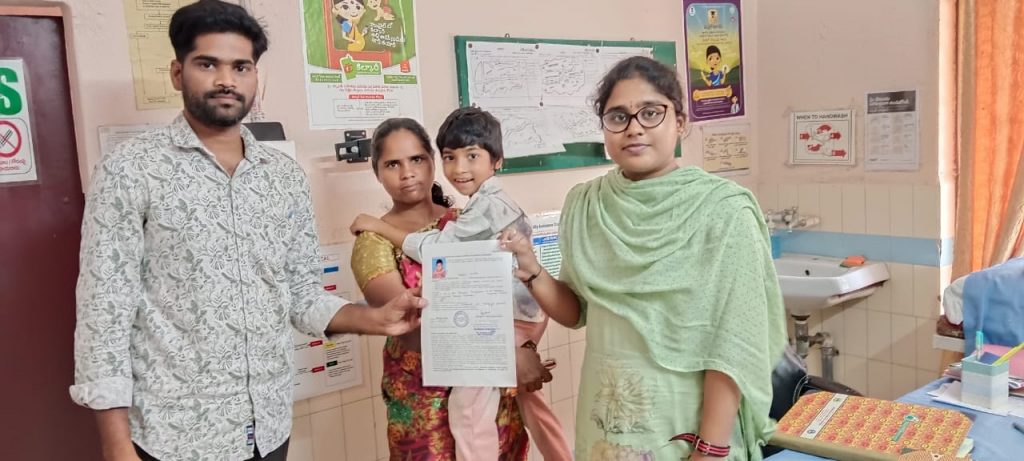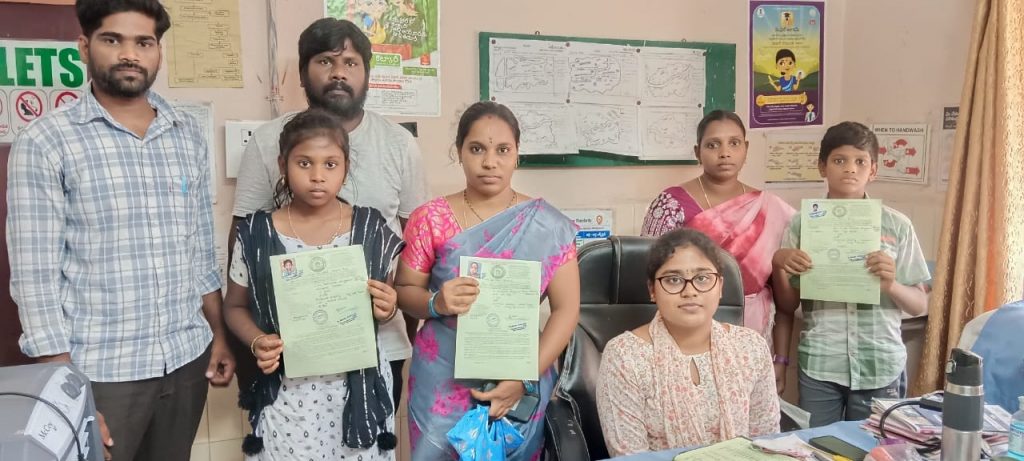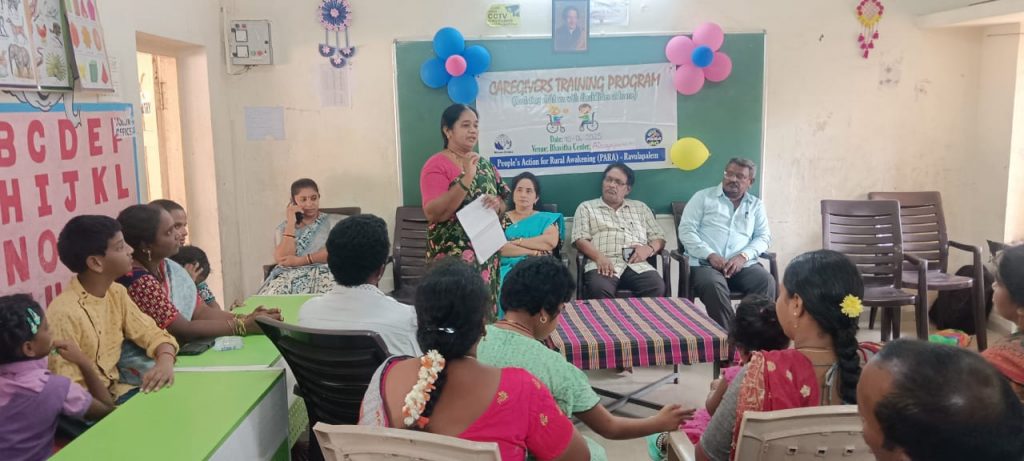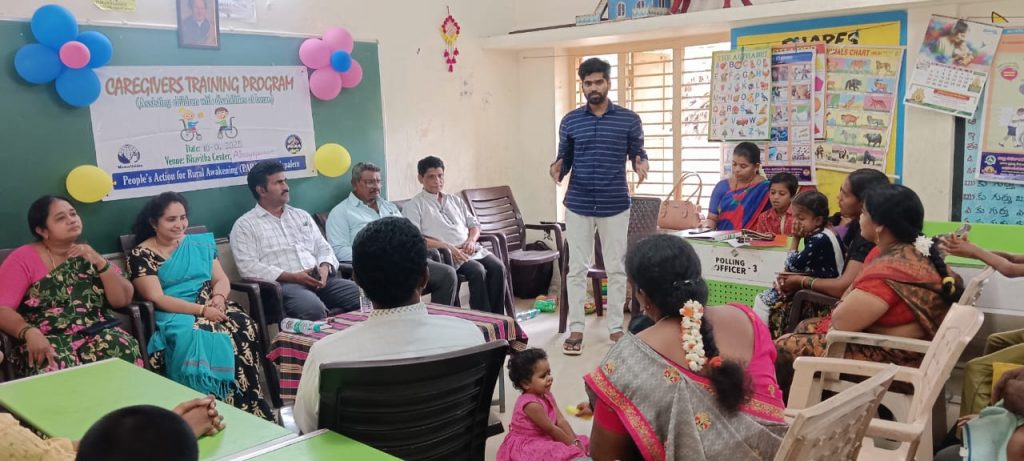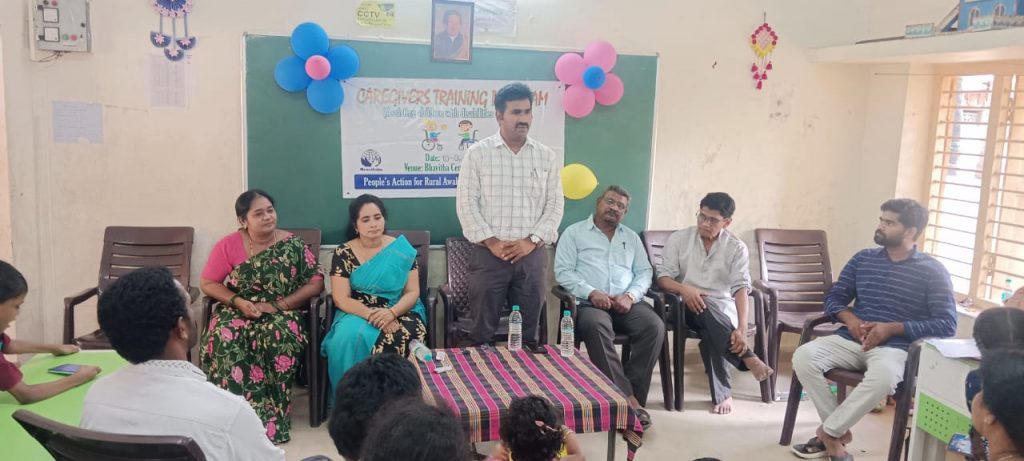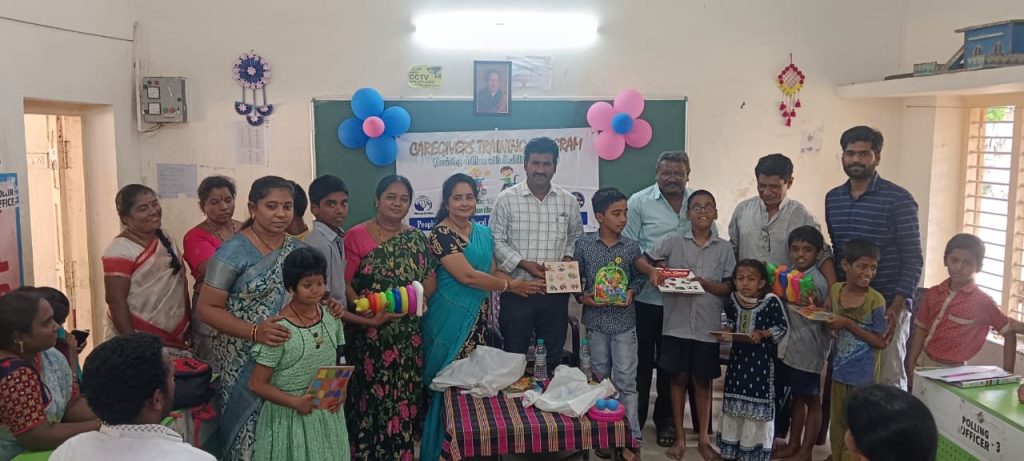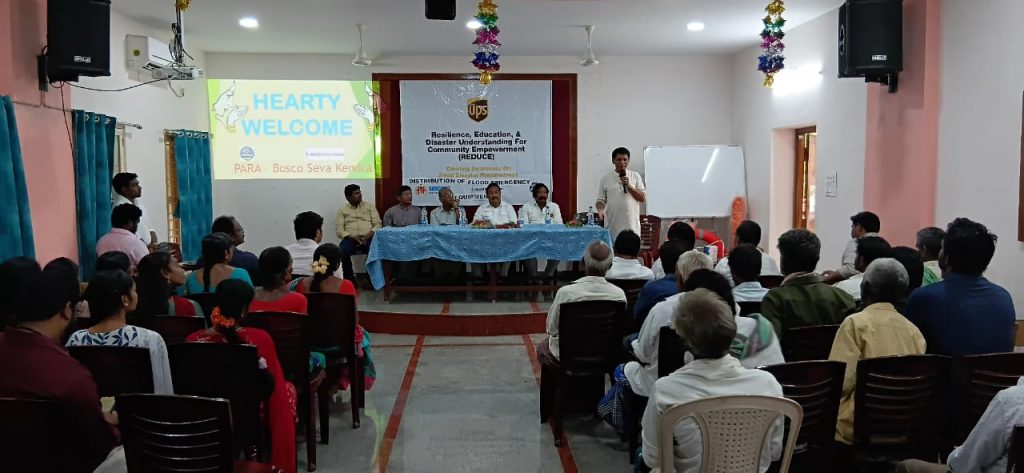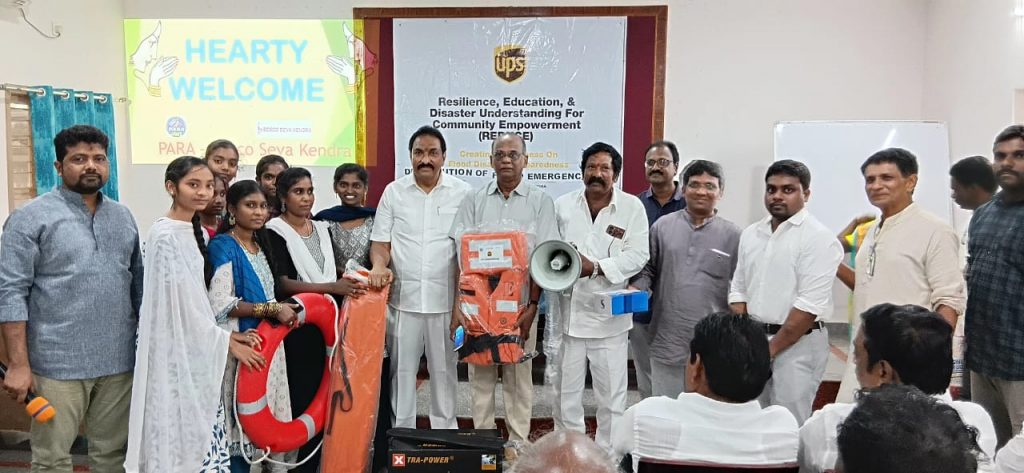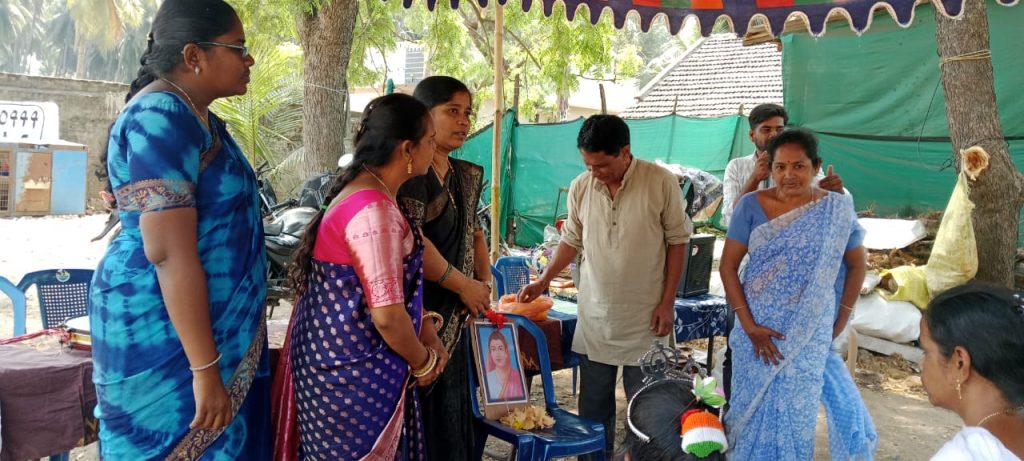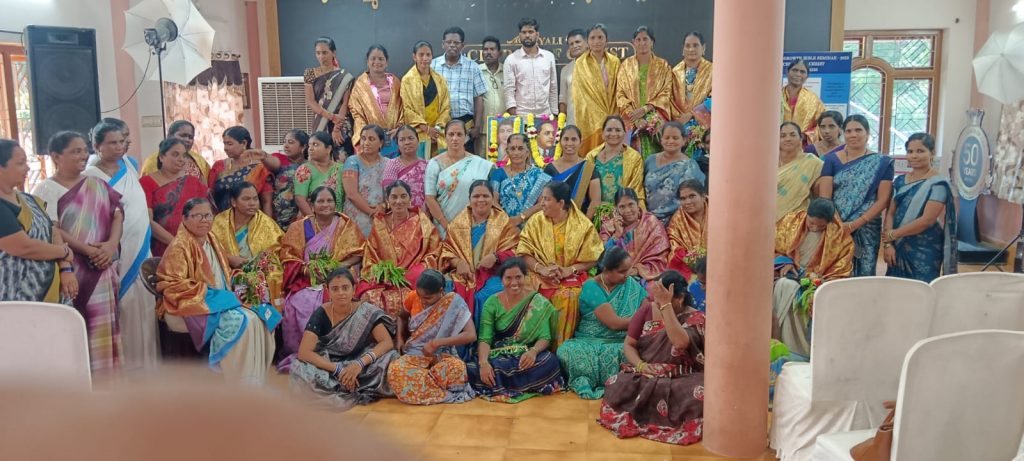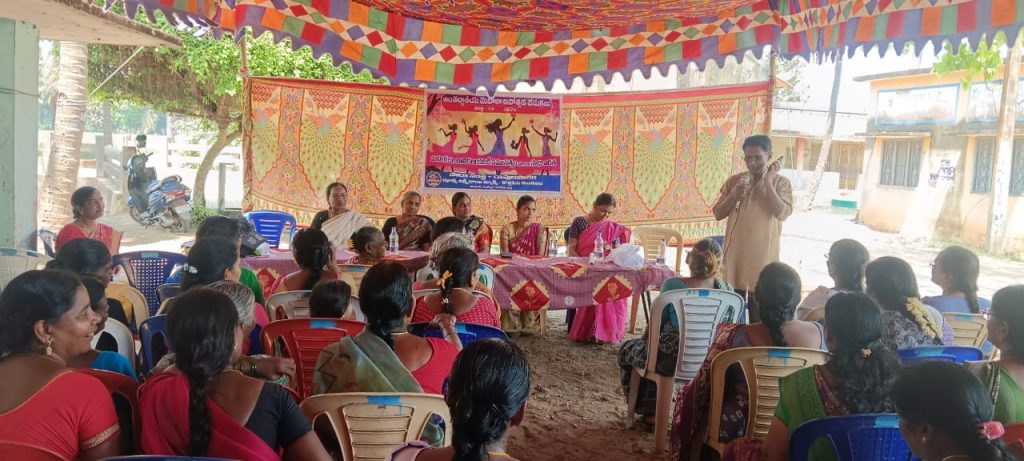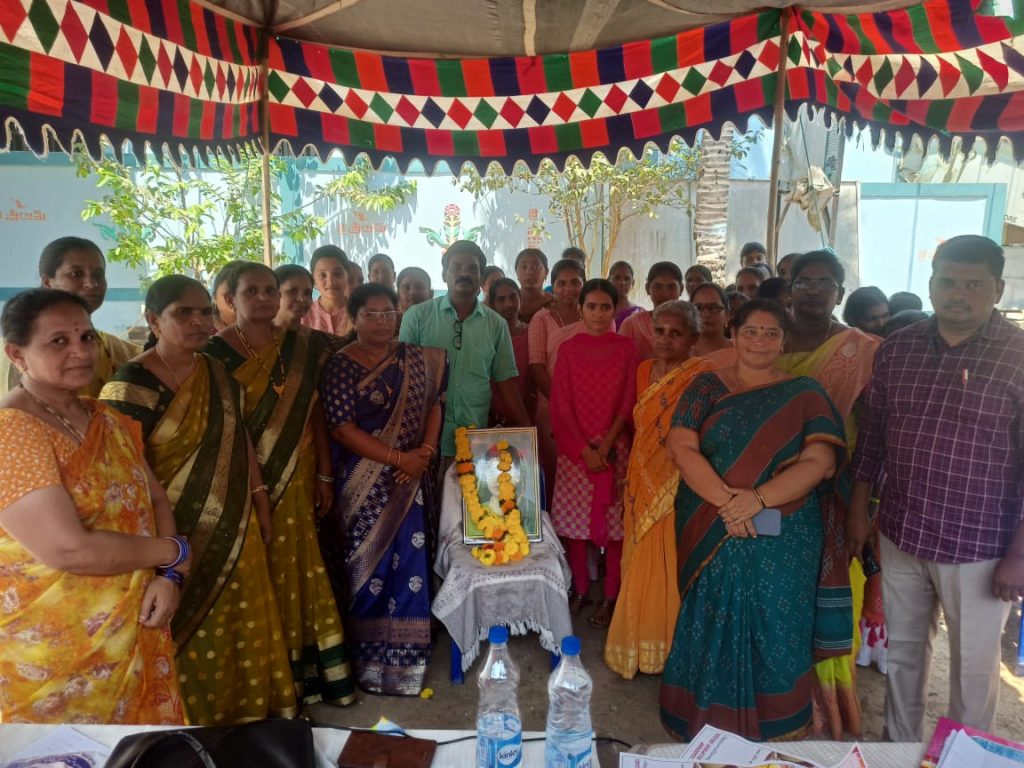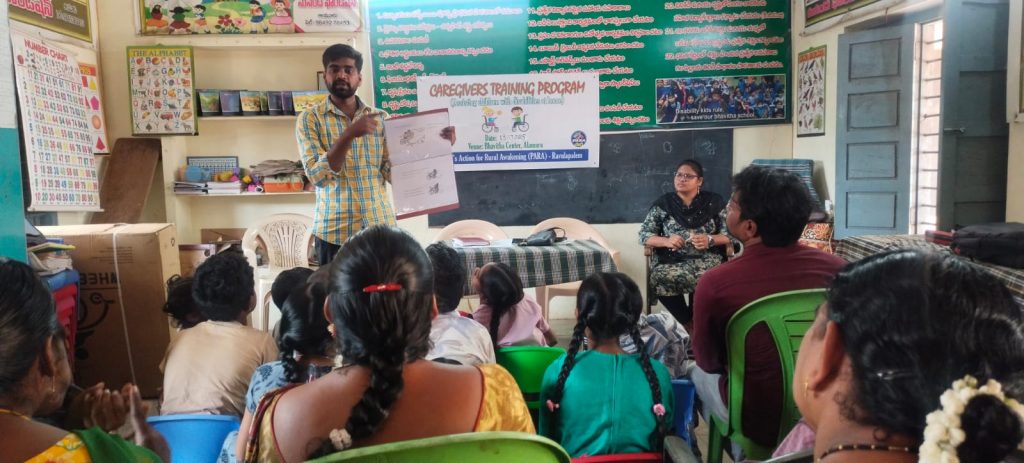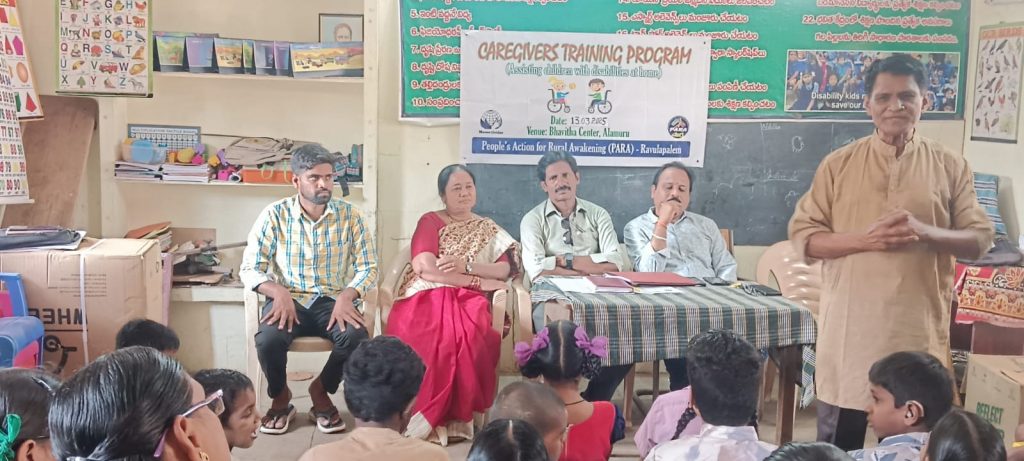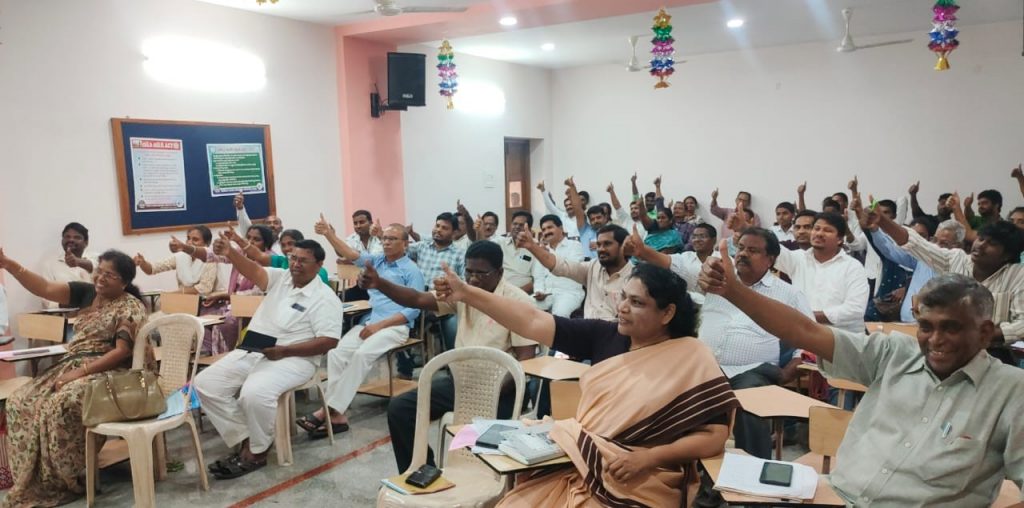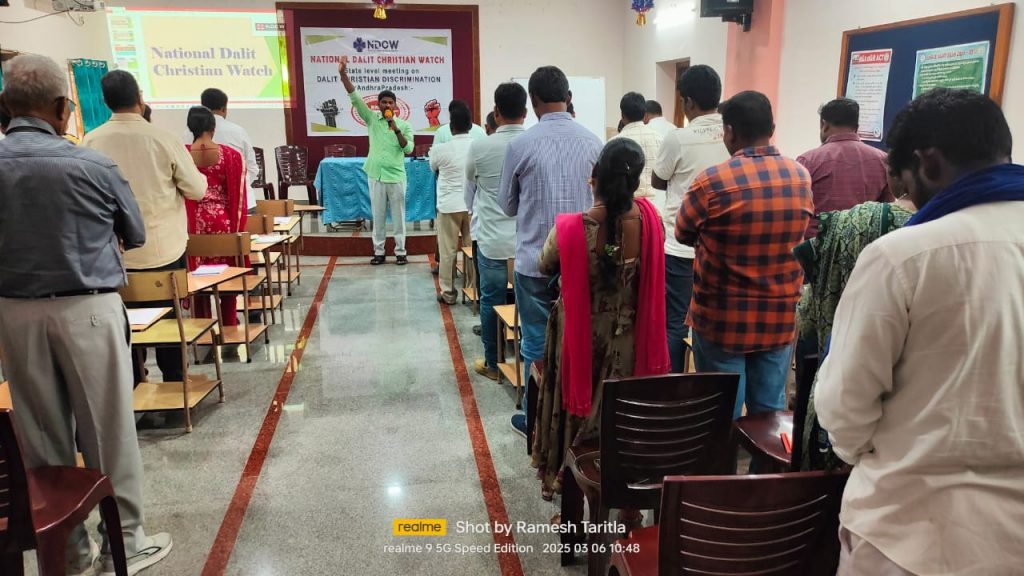On 9th May 2025, an impactful awareness programme was conducted at the Rajahmundry Railway Station platform, aiming to address issues surrounding migrant workers, human trafficking, and child protection. The event was held in collaboration with small-scale vendors and the Railway Protection Force (RPF), focusing on passengers arriving from various parts of the country to Rajahmundry. The programme was conducted under the leadership of RPF Circle Inspector (CI) B. Raju.
Representatives from the Andhra Pradesh & Telangana Migrant Workers Forum and PARA organization, including Md. Ameer Pasha, joined hands with members from Childline, Government Railway Police (GRP) Sub-Inspector Lova Raju, and RPF Sub-Inspector Viswanath to make this initiative a success.
During the event, SI Viswanath shed light on the pressing issue of human trafficking, particularly how vulnerable individuals are often lured with false promises of employment and financial security, only to be deceived and exploited. He urged local vendors and passengers to stay vigilant and report any suspicious activities immediately to the authorities.
Md. Ameer Pasha highlighted the challenges faced by migrant workers traveling from other states in search of livelihood opportunities. He elaborated on the collaborative efforts between PARA, DB4M (Don Bosco for Migrants), and various government departments to create and implement action plans focused on the protection and welfare of migrant workers. He also shared insights into DB4M’s nationwide work to safeguard the rights and dignity of migrants.
The programme featured real-life case studies from DB4M’s interventions, showcasing how issues raised through their dedicated WhatsApp groups were successfully resolved. One such case involved the rescue of young girls who had been deceived while seeking employment. Another highlighted the case of a woman who was wrongfully dismissed without pay, with DB4M’s Hyderabad Desk—supported by Mr. Ivan—successfully recovering her wages after contacting the employer. These examples were shared with participants through visual presentations of actual WhatsApp communications, illustrating the practical support available to those in need.
In addition to the awareness sessions, information was provided about key government welfare schemes for migrant workers. Special emphasis was placed on the importance of E-Shram registration, which offers various benefits and protections to registered workers.
The Childline team also addressed the gathering, explaining their procedures for responding to child-related issues at public locations such as railway stations. They appealed to vendors and the public to report any suspicious situations involving children either to Childline or the police immediately.
The event also marked the introduction of CI B. Raju, who recently assumed charge of the Rajahmundry RPF unit. PARA representative Md. Ameer Pasha had met him prior to the event and briefed him about the work of DB4M and the Migrant Workers Forum. This early engagement paved the way for a collaborative effort, as reflected in the success of the programme.
The initiative underscored the importance of continued collaboration between civil society organizations, law enforcement agencies, and the local community to ensure the safety, dignity, and rights of migrant workers and vulnerable populations.
